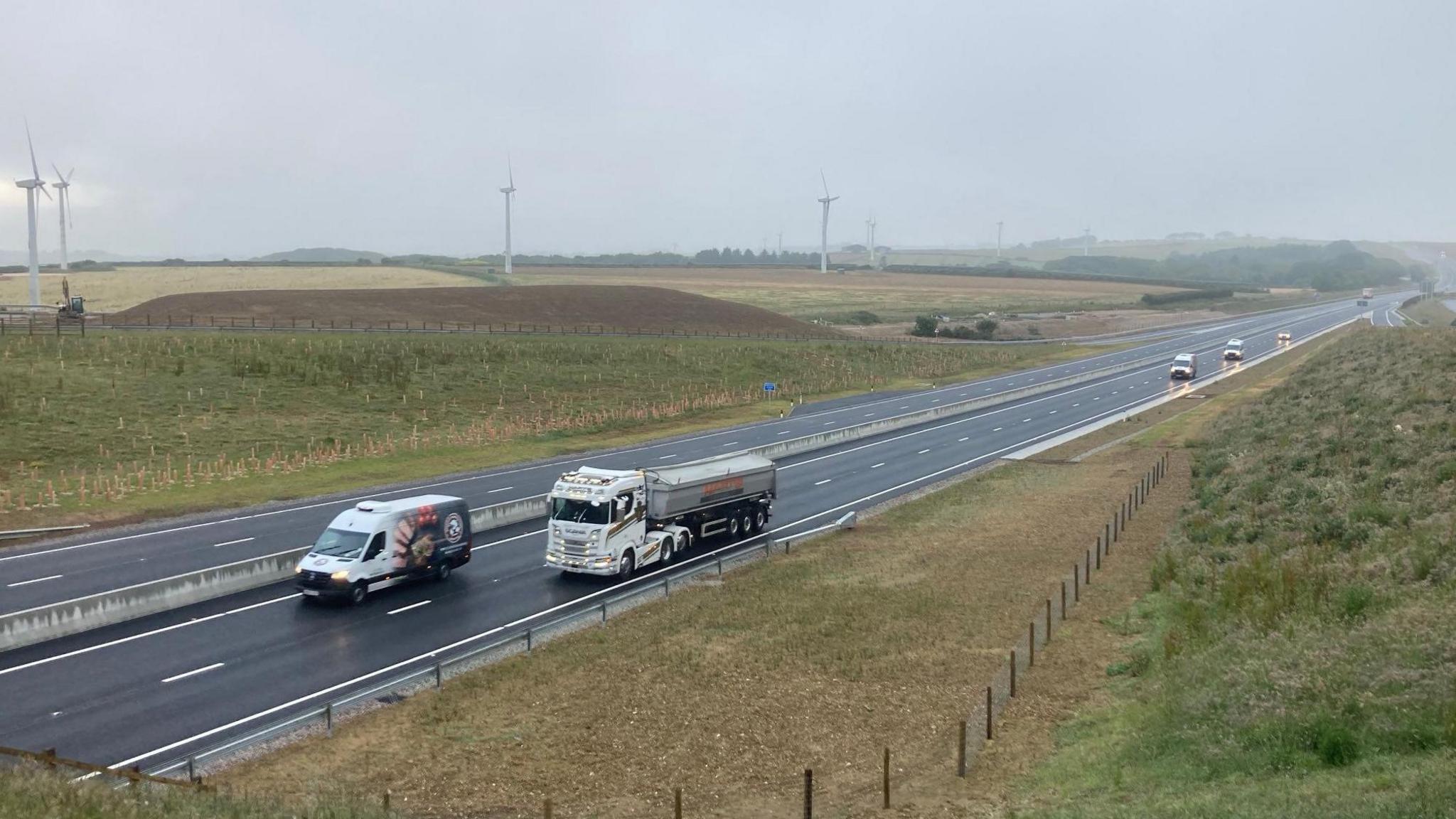Bats move into newly built barn after road upgrade
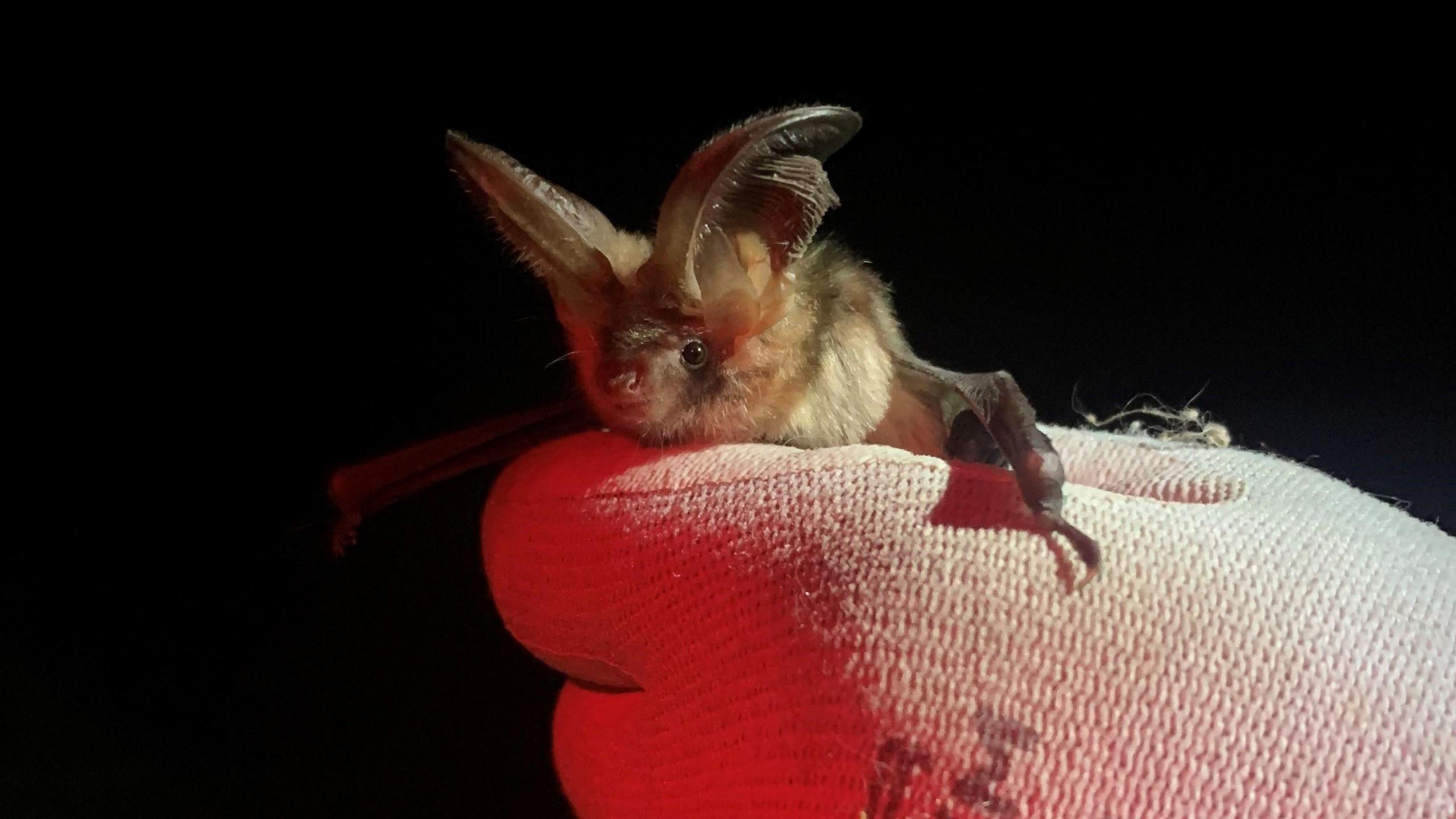
Long-eared bats are among four species roosting in the new barn
- Published
Bats have been found roosting in a purpose-built barn next to a major road upgrade.
The bespoke bat house was built in 2022 near a new stretch of dual-carriageway on the A30 in Cornwall that opened earlier this year.
The building was part of a number of environmental mitigation measures for National Highways’ A30 Chiverton to Carland Cross scheme.
Experts said they were "delighted" four species of bat are already living there.
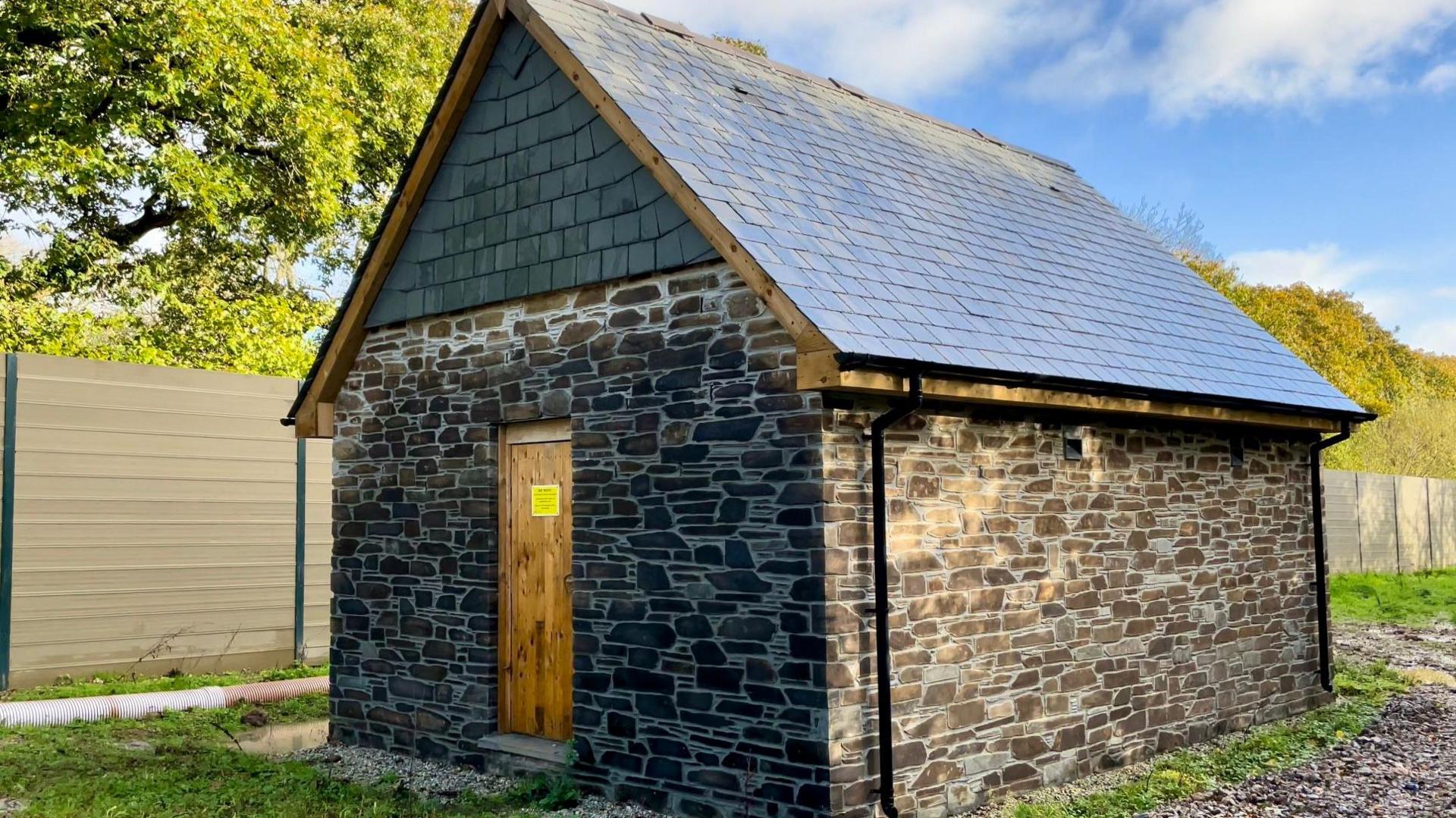
The insulated barn was built with Cornish stone and slate with features such as bat tubes and special crevices
'Feel comfortable'
Steve Marshall, principal bat ecologist at Cornwall Environmental Consultants Ltd, said: “We were delighted to see evidence of bats moving into the bat house last year, and even more pleased this year to record four species of bats, including Lesser Horseshoes, roosting for the first time.
“Bats can be difficult to mitigate for and typically take more time to colonise new roost sites, but they obviously feel comfortable using this one."
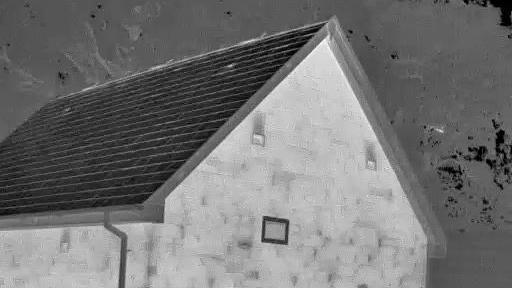
Thermal imaging captured bats coming and going from the bat barn
There has also been recorded activity of brown, long-eared and common pipistrelle and myotis bat species.
Emma Stuart, environmental advisor with construction firm Costain said the activity showed how much the barn "will help the local bat population."
"We didn't think it would be this soon because there is still activity going on in the area with construction works," she said.
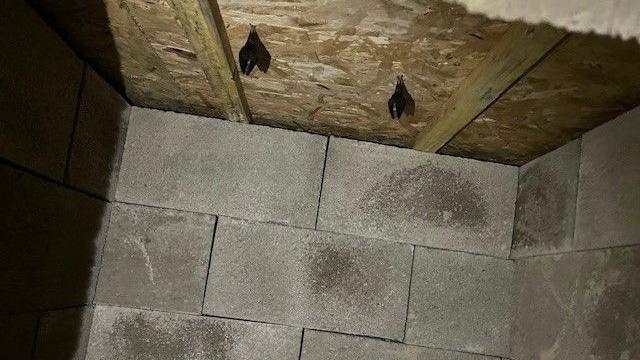
Lesser horseshoe bats pictured in the barn
Neil Winter, National Highways senior project manager, said he was "proud" of the work to protect and enhance the ecology and environment around the 8.7 mile (14km) stretch of new road.
"This includes the bat mitigation, wildlife-proof fencing, Cornish hedging and heathland relocating, and we’re currently forecasting a net gain of over 20% in biodiversity," he said.
The new dual-carriageway opened in June, but the wider scheme is continuing with ancillary and finishing-up works.
As part of the licence conditions for the project, monitoring of all ecology measures, including the bat barn, will continue until 2032.
Follow BBC Cornwall on X, external, Facebook, external and Instagram, external. Send your story ideas to spotlight@bbc.co.uk, external.
- Published9 September 2024
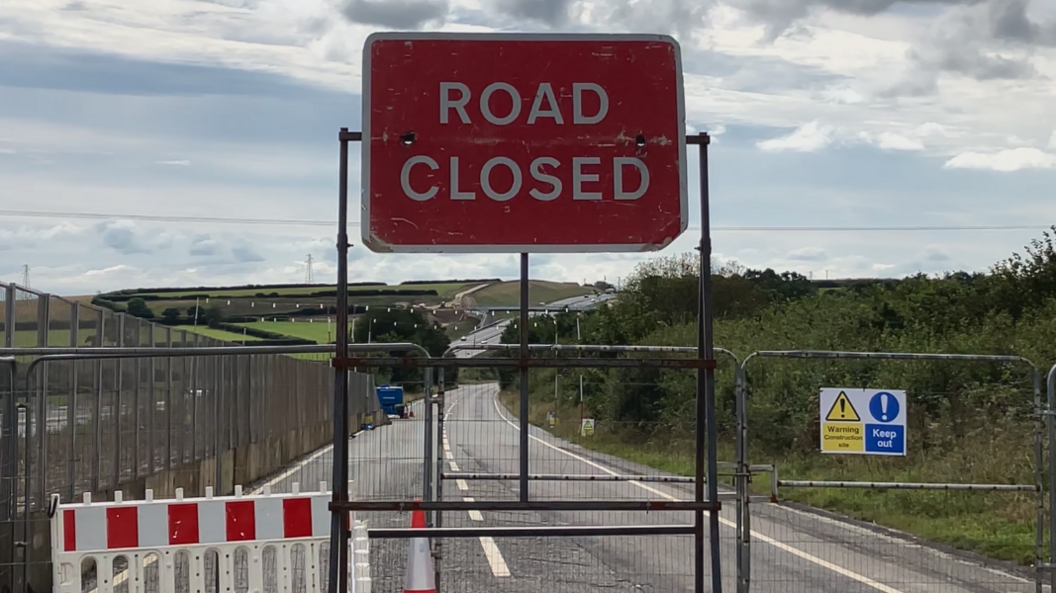
- Published24 June 2024
